Adding fescue in dormant bermuda?
weigojmi
15 years ago
Featured Answer
Sort by:Oldest
Comments (18)
iforgotitsonevermind
15 years agoweigojmi
15 years agoRelated Professionals
Arnold Landscape Architects & Landscape Designers · Davidson Landscape Contractors · El Segundo Landscape Contractors · Fort Worth Landscape Contractors · Huntington Landscape Contractors · Lynn Landscape Contractors · Munster Landscape Contractors · New Cassel Landscape Contractors · West Haverstraw Landscape Contractors · West Orange Landscape Contractors · Yuba City Landscape Contractors · Yukon Landscape Contractors · Ansonia Landscape Contractors · Long Branch Swimming Pool Builders · Rocklin Swimming Pool Builderstexas_weed
15 years agoiforgotitsonevermind
15 years agommqb
15 years agoauteck
15 years agoweigojmi
15 years agotexas_weed
15 years agoauteck
15 years agoweigojmi
15 years agotexas_weed
15 years agoauteck
15 years agoweigojmi
15 years agoauteck
15 years agoweigojmi
9 years agodchall_san_antonio
9 years agoDSpro
2 years ago
Related Stories

GARDENING GUIDESNew Ways to Think About All That Mulch in the Garden
Before you go making a mountain out of a mulch hill, learn the facts about what your plants and soil really want
Full Story
EARTH DAYThe Case for Losing the Traditional Lawn
Work less, help the environment and foster connections by just saying no to typical turf
Full Story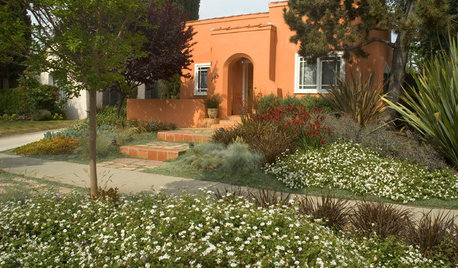
GREAT HOME PROJECTSHow to Replace Your Lawn With a Garden
New project for a new year: Lose the turfgrass for energy savings, wildlife friendliness and lower maintenance
Full Story
GARDENING GUIDES5 Great Grasses for a New Lawn
Learn about maintenance, wear tolerance, ideal climate and more for these top turf choices to pick the right one for you
Full Story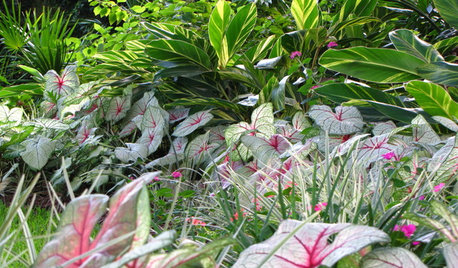
LANDSCAPE DESIGNDitch Shade Garden Gloom the Tropical Way
Has your shade garden strayed too far to the dark side? Help it see the light with tropical bulbs, ground covers and even houseplants
Full Story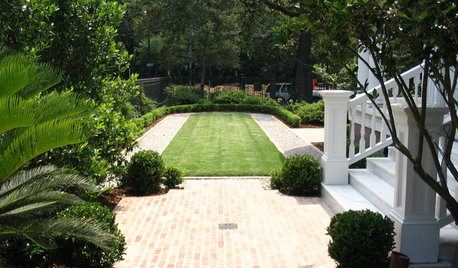
GARDENING GUIDESHow to Plant a New Lawn From Sod
Take the quick-start route to turf with sod; these installation guidelines will help ensure a healthy and long-lasting lawn
Full Story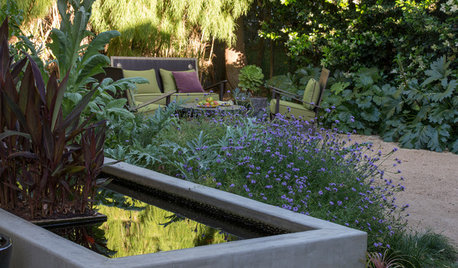
SAVING WATERHouzz Call: Are You Letting Go of Your Lawn?
Many facing a drought are swapping turf for less thirsty plantings. If you’re one of them, we’d like to hear about it
Full Story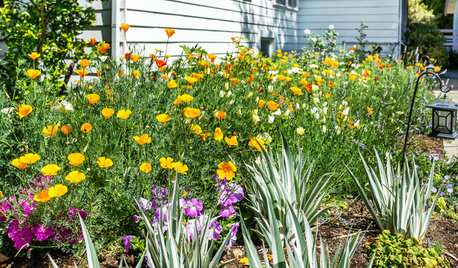
LANDSCAPE DESIGN10 Ideas for a Creative, Water-Conscious Yard
Check out these tips for a great-looking outdoor area that needs less water
Full Story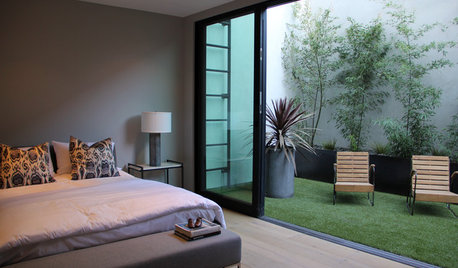
LANDSCAPE DESIGNIs It Time to Consider Fake Grass?
With more realistic-looking options than ever, synthetic turf can be a boon. Find the benefits and an installation how-to here
Full Story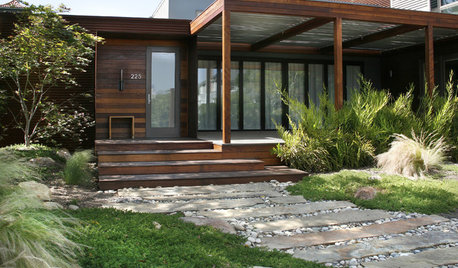
LANDSCAPE DESIGN7 Low-Maintenance Lawn Alternatives
Turf isn't the only ground cover in town. Get a lush no-grass lawn with clover, moss and other easy-care plants
Full StoryMore Discussions








dchall_san_antonio